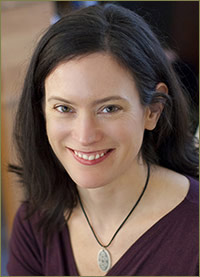
Prior to opening a private practice, Ms. Lynch worked at Dartmouth College providing mental health services for young adults in the Counseling and Human Development Office at “Dick’s House.” In addition to providing individual counseling she ran both a mindfulness/stress reduction and “food and mood” group. Ms. Lynch served for part of this time as a co-chair of the Eating Disorder Team. In a collaborative, cross campus initiative, Ms. Lynch ran workshops on performance anxiety at the Dartmouth College music department.
Additionally, Ms. Lynch trained and worked at Two Brattle Center in Cambridge, MA. Here she worked in an intensive outpatient adult and adolescent program using psychodynamic therapyPsychodynamic therapy focuses on the psychological roots of emotional suffering. Its hallmarks are self-reflection and self-examination, and the use of the relationship between therapist and patient as a window into problematic relationship patterns in the patient’s life. Its goal is not only to alleviate the most obvious symptoms but to help people lead healthier lives. and Dialectical Behavioral TherapyDialectical Behavioral Therapy (DBT) is a combination of CBT and elements of acceptance and mindfulness. DBT was developed by psychologist Marsha Linehan specifically for people struggling with suicidality and self harm behaviors. (DBT). She has worked with young adults and adults in intensive day programs, with adults and families in long-term community mental health settings , and adults and children in bereavement settings.
Ms. Lynch’s psychotherapy practice is infused with a mindfulness perspective. She has attended multiple trainings and experiential workshops on mindfulness and meditation. This includes trainings in acceptance and commitment therapy (ACT), yoga and meditation, mindfulness based stress reduction (MBSR), and Zen meditation.
